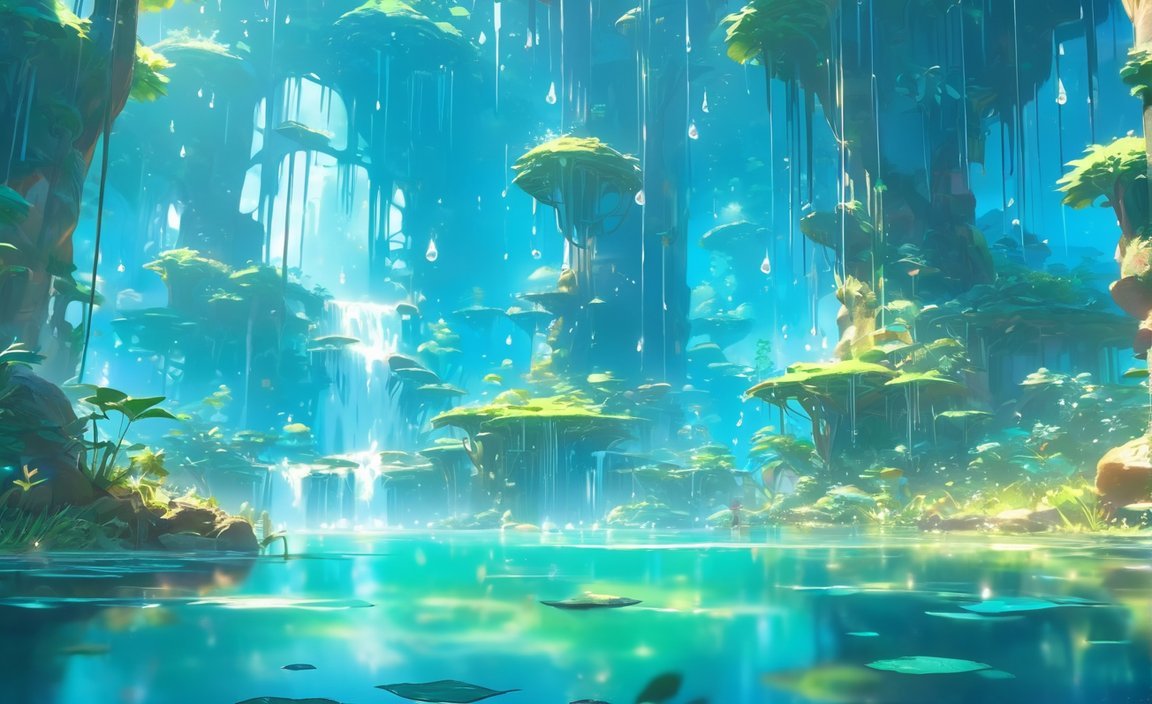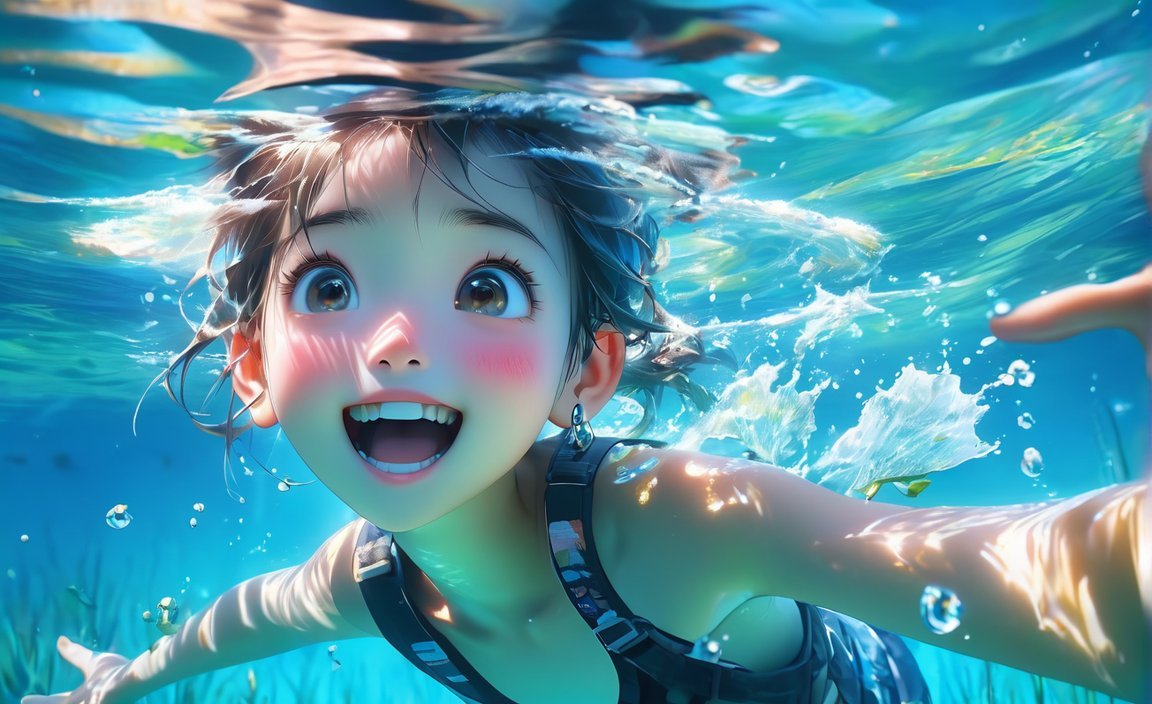The Vitality of Water Conservation: 10 Lessons for Students

Water, the elixir of life, is an invaluable resource that sustains our planet and everything that dwells within it. As students, it is crucial for us to grasp the importance of water conservation and our role in preserving this precious commodity. Through this article, we will delve into ten vital lessons that will empower and educate us on the significance of conserving water. From understanding the global water crisis to implementing practical strategies in our daily lives, these lessons will shape us into responsible stewards of our planet. Let us embark on this journey, exploring the vitality of water conservation, and paving the way for a sustainable future.
Key Takeaways:
- Water conservation involves using methods to reduce the use of freshwater resources.
- Students play a vital role in promoting water conservation in schools.
- Conserving water is crucial for preserving the future and ensuring sustainable water management.
- Students can save water by carrying refillable water bottles and practicing conservation-friendly habits.
- Creating clubs and initiatives can help promote water conservation in schools.
- Education and awareness about water conservation are essential.
- Implementing policy changes, improving infrastructure, and using water-efficient technologies are crucial on a broader scale.
- Promoting water conservation leads to increased awareness and changes in collective behavior.
- The educational environment provides opportunities for students to adopt water conservation approaches.
- Water is a precious resource, and it is important to conserve it.
The Vitality of Water Conservation: 10 Lessons for Students
As students, we have the incredible power to shape the future. Our actions today can have a lasting impact on the world we inherit tomorrow. One crucial aspect of this responsibility is water conservation. Water, the elixir of life, is a finite resource that we must cherish and protect. In this article, we will explore the 10 key lessons that highlight the importance of water conservation for students like us.
Lesson 1: The Preciousness of Water
Water is a precious resource that must not be taken for granted. While the Earth may be covered in water, only a small percentage of it is freshwater that is safe for us to use. This limited supply requires us to be conscious of our water usage and make efforts to conserve it.
Lesson 2: The Role of Students in Water Conservation
Every student has the power to make a difference in the world. By understanding and practicing water conservation methods, we can become champions of change. Whether it’s by taking simple actions at home or organizing initiatives in our schools, we can contribute to a sustainable future.
Lesson 3: Simple Steps for Students to Save Water
Saving water doesn’t have to be complicated. Here are a few simple steps we can take every day:
- Carry a refillable water bottle to reduce the need for single-use plastic bottles.
- Use only one plate in the lunch line to minimize water used for cleaning.
- Turn off the water while washing hands and brushing teeth to avoid unnecessary wastage.
- Report any leaks or dripping faucets to the school administration.
Lesson 4: The Power of Student-led Initiatives
Students have the ability to create change within their schools and communities. By organizing clubs and initiatives focused on water conservation, we can raise awareness and inspire others to take action. These projects can involve activities such as organizing educational campaigns, implementing water-saving practices, and advocating for sustainable policies.
Lesson 5: Water Conservation as a Sustainable Practice
Water conservation is not just beneficial for the present; it is essential for a sustainable future. By practicing water conservation methods, we contribute to the preservation of this precious resource for generations to come.
Lesson 6: Collective Behavior Change
Promoting water conservation among students can lead to increased awareness and changes in collective behavior. As more young individuals embrace water-saving habits, the impact on the community and the environment becomes even more significant.
Lesson 7: The Importance of Education and Awareness
Education and awareness play a vital role in fostering a culture of water conservation. By learning about the value of water and the impact of our actions, we can inspire others to join the cause. Through educational programs and initiatives, we can empower students to be conscious stewards of our planet.
Lesson 8: Need for Innovative Policies and Technology
On a broader scale, water conservation requires innovative policies, technology, and individual actions. Governments and organizations must implement measures to reduce water waste and make water usage more efficient. Embracing water-efficient technologies and infrastructure improvements can help us achieve significant conservation goals.
Lesson 9: Promote Conservation Beyond Schools
While students can inspire change within their educational institutions, it is crucial to broaden our efforts beyond the school walls. By advocating for water conservation in our communities and engaging with local authorities, we can make a lasting impact on water management practices.
Lesson 10: The Role of Advocacy in Water Conservation
Advocacy is a powerful tool in promoting water conservation. By leveraging our communication skills and passion for sustainability, we can effectively raise awareness about the importance of water conservation. Through public speaking, writing, and social media, we can reach a broader audience and inspire others to join the movement.
Remember, as students, we have the ability to create a brighter and greener future. By understanding and practicing water conservation, we can preserve this invaluable resource for generations to come. Let’s take the lead in fostering a mindset of sustainability, one drop at a time.
In Nigeria, transportation plays a vital role in the country’s development and growth. Click here to discover the top 10 importance of transportation in Nigeria.
When it comes to global connectivity, transportation is the key to bringing the world closer. Find out the significance of transportation in the world by clicking here.
The transportation system is the lifeline of any nation. Explore the top 10 importance of a robust transportation system by clicking here.
Water conservation is crucial for the sustainability of our planet. Click here to understand the significance of water conservation.
In farming, water conservation is an essential practice. Discover the 10 importance of water conservation in farming by clicking here.
The Vitality of Water Conservation: 10 Lessons for Students
Water is an incredible resource that sustains all life on Earth. From quenching our thirst to irrigating our crops, water plays a crucial role in our daily lives. However, it is important to recognize that water is not an infinite resource. We must learn to value and conserve it starting from a young age. In this article, we will explore ten important lessons about the significance of water conservation for students.
The Importance of Water Conservation
Lesson 1: Water is a Limited Resource
Imagine a vast ocean, teeming with life and possibilities. Now consider this: less than 1% of the Earth’s water is available for us to use. This limited amount of freshwater is constantly at risk due to pollution, overuse, and climate change. Water conservation is vital to ensure this precious resource remains available for future generations.
Lesson 2: Every Drop Counts
It’s easy to take water for granted, but every drop we save can make a difference. Simple actions, such as turning off the faucet while brushing our teeth or taking shorter showers, can significantly reduce our water consumption. By being mindful of our actions, we can collectively conserve large volumes of water.
Water Conservation Techniques
Lesson 3: Harness the Power of Rainwater
Rainwater is a gift from nature that can be utilized for various purposes. Students can learn about rainwater harvesting systems and how they can collect and store rainwater for watering plants or flushing toilets. This not only reduces the strain on freshwater sources but also promotes self-sufficiency.
Lesson 4: Embrace Water-Saving Devices
Innovative technology has given us incredible water-saving devices that can be used in homes, schools, and public spaces. From low-flow faucets and showerheads to dual-flush toilets, these devices minimize water wastage without compromising convenience. Students can advocate for the installation of such devices to promote sustainable water management.
Lesson 5: Analyze Your Water Usage
Understanding our water consumption patterns is an important step in conserving water. Students can learn to measure their water usage, identify areas where they can make improvements, and set goals for reducing water consumption. This knowledge empowers them to take control and make positive changes in their daily lives.
Raising Awareness and Taking Action
Lesson 6: Lead by Example
Students have the power to inspire others through their actions. By adopting water-saving habits and spreading awareness among their peers, they can create a ripple effect of change. Encourage students to be conscious stewards of water and motivate others to join them on this journey of conservation.
Lesson 7: Organize Water Conservation Campaigns
Water conservation camps and activities are a fantastic way to engage students and the community in hands-on learning. These events can include workshops, competitions, and interactive sessions that educate participants about sustainable water practices. By organizing such initiatives, students can make a tangible impact and inspire others to become water-conscious individuals.
Becoming Champions of Water Conservation
Lesson 8: Explore Alternative Water Sources
Freshwater sources, such as rivers, lakes, and underground aquifers, are not the only options for meeting our water needs. Students can explore alternative sources, such as recycled wastewater or graywater, for non-potable uses like irrigation. This reduces the burden on freshwater sources and encourages a circular approach to water management.
Lesson 9: Advocate for Education and Awareness
Education is a powerful tool for creating lasting change. Students can advocate for incorporating water conservation topics into their schools’ curriculum. By raising awareness about the importance of water conservation among their peers, they can create a culture of sustainability and empower others to take action.
Lesson 10: Be Water-Wise Citizens
Water conservation is not limited to school grounds; it extends to our communities and beyond. Students can engage with local authorities, participate in community clean-up initiatives, and support policies that promote water conservation. Empowered by knowledge and their role as responsible citizens, they can drive impactful change on a larger scale.
Key Takeaways:
- Water is a limited and precious resource that must be conserved.
- Students can take small actions to make a big difference in water conservation.
- Rainwater harvesting and water-saving devices are effective techniques for conserving water.
- Understanding water usage patterns empowers students to reduce consumption.
- Students can lead initiatives, such as water conservation campaigns, to raise awareness.
- Exploring alternative water sources and advocating for education and awareness are essential in creating a sustainable future.
- Students can be champions of water conservation by engaging with their communities and supporting relevant policies.
Sources:
1. 10 Lines on Water Conservation for Students and Children in English
2. Water Conservation Lesson Plan | Study.com
The Vitality of Water Conservation: 10 Lessons for Students
Water conservation is not just a fancy term that adults throw around. It’s a crucial practice that plays a significant role in protecting our environment and ensuring a sustainable future. As students, you have the power to make a difference and contribute to water conservation efforts in your own unique ways. In this article, we will explore the importance of water conservation and highlight ten valuable lessons for students like you.
Lesson 1: Water is Precious, and Every Drop Counts
Water is a limited resource, with less than 1% of Earth’s water available for use. This means that we must treat every drop as a precious commodity. By being mindful of our water usage and avoiding wastage, we can make a significant impact on water conservation. Whether it’s turning off the faucet while brushing your teeth or using a refillable water bottle instead of single-use plastic, every small action counts.
Lesson 2: Understanding the Impact of Water Conservation
Conserving water is not just about saving resources; it’s about protecting the environment too. By reducing our use of freshwater, we can contribute to preserving natural habitats and ecosystems. Additionally, conserving water helps maintain the purity and cleanliness of our water sources, ensuring that future generations have access to safe and healthy water.
Lesson 3: Different Methods of Water Conservation
There are various methods of water conservation that you can incorporate into your daily life. One effective method is water monitoring, where you keep track of your water usage to identify areas for improvement. Another approach is adopting conservation-friendly practices such as taking quick showers instead of baths and fixing leaky faucets promptly.
Lesson 4: The Power of Education and Awareness
As students, you have the opportunity to learn about the importance of water conservation and share your knowledge with others. By educating your peers and promoting awareness through activities like rainwater deposition and garden use, you can inspire a culture of conservation in your school and community.
Lesson 5: Water Conservation for Sustainable Development
Water conservation is an essential component of sustainable development. By conserving water, we ensure that there is enough for everyone’s needs, both now and in the future. It allows for equal and sustainable development for all, making sure that no one is left behind.
Lesson 6: Innovative Solutions for Water Conservation
Innovation in policy, technology, and individual actions is key to improving water efficiency and reducing waste globally. From implementing water-saving devices to exploring alternative water sources like recycled wastewater, there are countless opportunities for innovation in water conservation. As students, you can play an active role in advocating for and supporting these innovative solutions.
Lesson 7: Water Conservation in School Curricula
Water conservation is a topic that should be integrated into school curricula. By incorporating lessons, activities, and educational resources focusing on water conservation, schools can ensure that students are aware of its importance from a young age. This knowledge will empower you to make informed decisions and take action to conserve water.
Lesson 8: Taking Collective Action
Managing and sharing limited freshwater resources requires collective action from individuals, communities, and even governments. By mobilizing your peers and engaging with local authorities, you can contribute to water conservation efforts on a larger scale. Together, we can prevent a global water crisis and create a more sustainable future.
Lesson 9: The Ripple Effect of Student Leadership
Students have enormous potential to lead initiatives and create change. By taking the lead in organizing water conservation campaigns and activities, you can inspire your peers and the wider community to join in the efforts. Your actions have a ripple effect, and together, we can make a significant impact on water conservation.
Lesson 10: Every Student Can Make a Difference
Don’t underestimate the power of your actions. As individuals, you can make a difference by practicing simple habits like taking shorter showers, turning off faucets when not in use, and reporting any water leaks you come across. By making conscious choices and being responsible for your water usage, you become a steward of the environment.
Key Takeaways:
- Water is a precious resource, and every drop counts.
- Conserving water is an essential practice to protect the environment.
- Students have the power to educate and raise awareness about water conservation.
- Water conservation is crucial for sustainable development and equal access to resources.
- Innovation in policy, technology, and individual actions drives water conservation efforts.
- Water conservation should be integrated into school curricula for greater impact.
- Taking collective action is necessary to manage and share limited freshwater resources.
- Student leadership can inspire others to take part in water conservation initiatives.
- Every student can contribute to water conservation through simple habits and responsible water usage.
- Water conservation is a continuous effort that requires the participation of all.
Sources:
- MasterClass: Water Conservation
- Earth.Org: Understanding the Importance of Water Conservation
The Importance of Water Conservation for Students
Water is an essential resource that sustains life on our planet. However, with increasing population and climate change, our freshwater resources are facing unprecedented challenges. To ensure a sustainable future, we must prioritize water conservation. As students, you have the power to make a significant impact by understanding and practicing water conservation techniques. Let’s explore why water conservation is crucial and how you can contribute to this vital cause.
Water Conservation: A Vital Necessity
Water conservation encompasses a series of methods aimed at reducing our use of freshwater resources. It involves monitoring our water consumption and adopting conservation-friendly practices. By conserving water, we protect our planet’s most important resource and ensure its availability for future generations.
Efforts for water conservation are not just about conserving water; they are about conserving freshwater resources available on our planet. Less than 1% of Earth’s water is available for use, making it a limited and precious resource that must be conserved.
The Importance of Water Conservation for Students
Water conservation is essential for a sustainable future. It’s about more than just saving water; it’s about fostering a culture of environmental responsibility. When students actively participate in water conservation efforts, they become conscious stewards of the planet, working towards a greener future.
By engaging in water conservation, students have the opportunity to:
Collect Data: Students can actively participate in helping to collect data on the savings achieved through installing more efficient devices in terms of water consumption. This data can be used to measure the impact of water conservation efforts and further raise awareness.
Develop Opinion: Developing an opinion on the importance of water conservation is crucial for students. They can plan and write an opinion essay on the topic, encouraging critical thinking and raising awareness among their peers.
Promote Sustainable Practices: Schools use a large quantity of water daily for various purposes, making sustainable water management in schools crucial. By adopting water conservation practices in schools and at home, students can set an example for others to follow.
Take Action: Every drop of water saved makes a difference. Students can lead initiatives to raise awareness and create change in their communities. By organizing water conservation campaigns and activities, they engage both students and the wider community, making a significant impact.
Educate and Inspire: Students can learn about water conservation and share their knowledge with others. By advocating for incorporating water conservation topics into school curriculums, they can ensure that future generations are equipped with the knowledge and skills to conserve water.
Practical Tips for Water Conservation
Now that we understand the importance of water conservation, let’s explore some practical tips that you can follow to make a difference:
Use refillable water bottles: By avoiding single-use plastic bottles, you can significantly reduce water waste and contribute to a cleaner environment.
Minimize water usage for cleaning: Whether you’re washing dishes or taking a shower, be mindful of your water consumption. Use only the amount you need and turn off taps when not in use.
Report leaks: If you notice any leaks in your school or community, report them immediately. Leaks contribute to water wastage and should be addressed promptly.
Explore alternative water sources: Learn about rainwater harvesting and its various uses. By utilizing rainwater for activities like gardening or toilet flushing, you can reduce the burden on freshwater sources.
Invest in water-saving devices: Installing low-flow faucets and dual-flush toilets can minimize water wastage. These small changes can have a significant impact on water conservation.
Remember, every action counts. By adopting these simple habits and being responsible with your water usage, you contribute to a more sustainable future.
Key Takeaways
- Water conservation is vital for protecting our planet’s most important resource and ensuring its availability for future generations.
- Students play a crucial role in water conservation efforts by collecting data, developing opinions, promoting sustainable practices, taking action, and educating others.
- Practical tips such as using refillable water bottles, minimizing water usage for cleaning, reporting leaks, exploring alternative water sources, and investing in water-saving devices can make a significant difference in water conservation.
Sources:
1. MasterClass: Understanding the Importance of Water Conservation
2. Earth.Org Kids: Understanding the Importance of Water Conservation

FAQ
Q1: Why is water conservation important for students?
A1: Water conservation is important for students because it helps them understand the value of water as a precious resource. By conserving water, students can contribute to the sustainability of our environment and ensure the availability of clean water for future generations.
Q2: What are some practical methods of water conservation that students can practice?
A2: Students can practice water conservation by carrying refillable water bottles, using only one plate in the lunch line, turning off the water when washing hands, and reporting any leaks or water wastage they notice. These small habits can go a long way in reducing water consumption.
Q3: How can schools promote water conservation among students?
A3: Schools can promote water conservation by organizing clubs and initiatives focused on raising awareness about the importance of water conservation. They can also incorporate water conservation topics into the curriculum, provide educational resources, and encourage students to participate in hands-on activities related to water conservation.
Q4: What role can students play in promoting water conservation in their schools?
A4: Students can play an active role in promoting water conservation in their schools by leading by example and educating their peers about the importance of conserving water. They can also participate in water monitoring projects, organize awareness campaigns, and encourage the adoption of water-saving technologies and practices.
Q5: How does water conservation contribute to sustainable water management?
A5: Water conservation is a crucial component of sustainable water management as it helps ensure the long-term availability of water resources. By reducing water waste and using water more efficiently, we can maintain a balance between societal needs and environmental preservation, promoting a more sustainable future.












